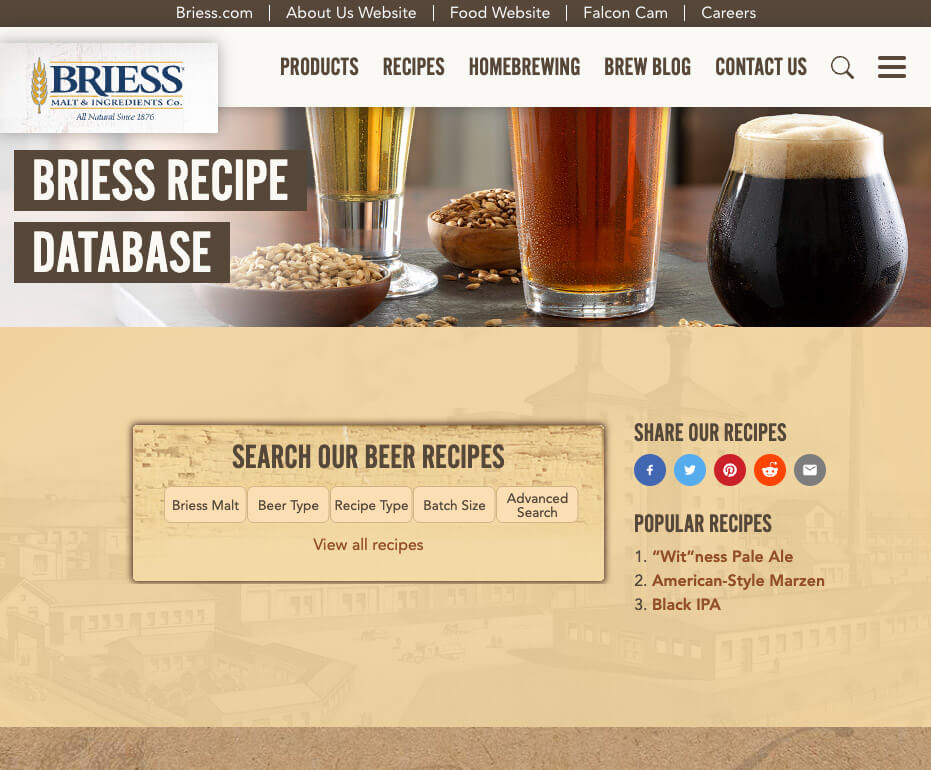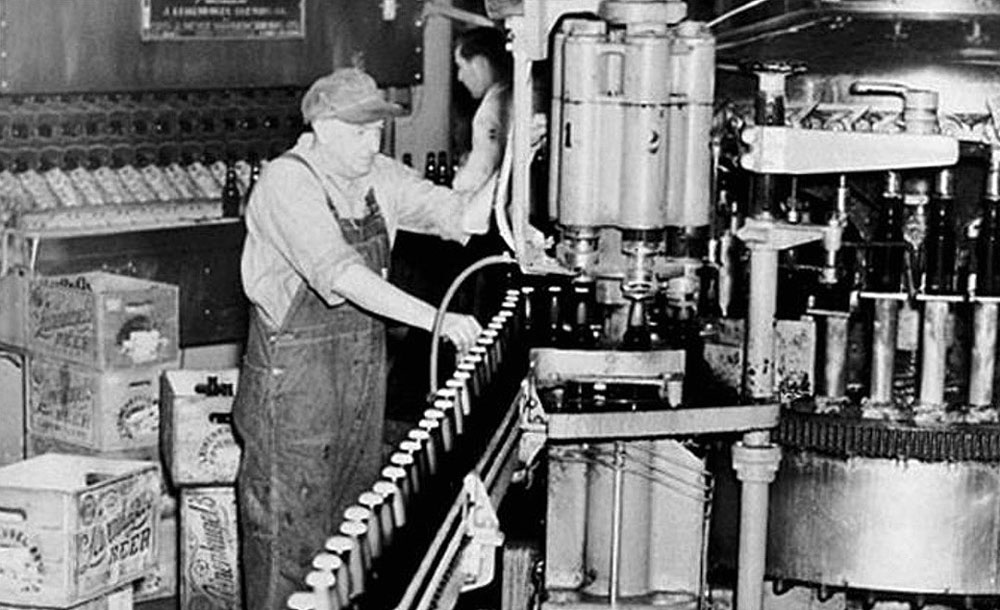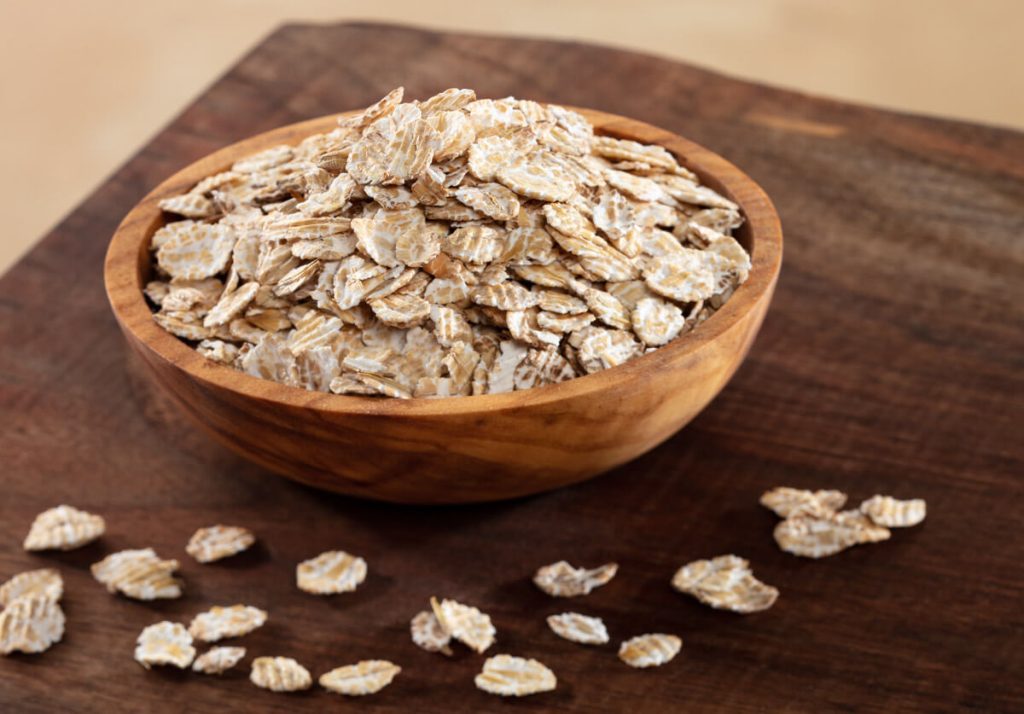
Flaked grains are such a common and useful ingredient for small brewers that there’s not a lot of discussion or education about them. Pretty much everyone is familiar with them and they are staple ingredients in many types of craft brew styles such as Hazy IPA and Oatmeal Stout. If you’ve ever had questions about why they are used or how to use them properly, this blog is for you.
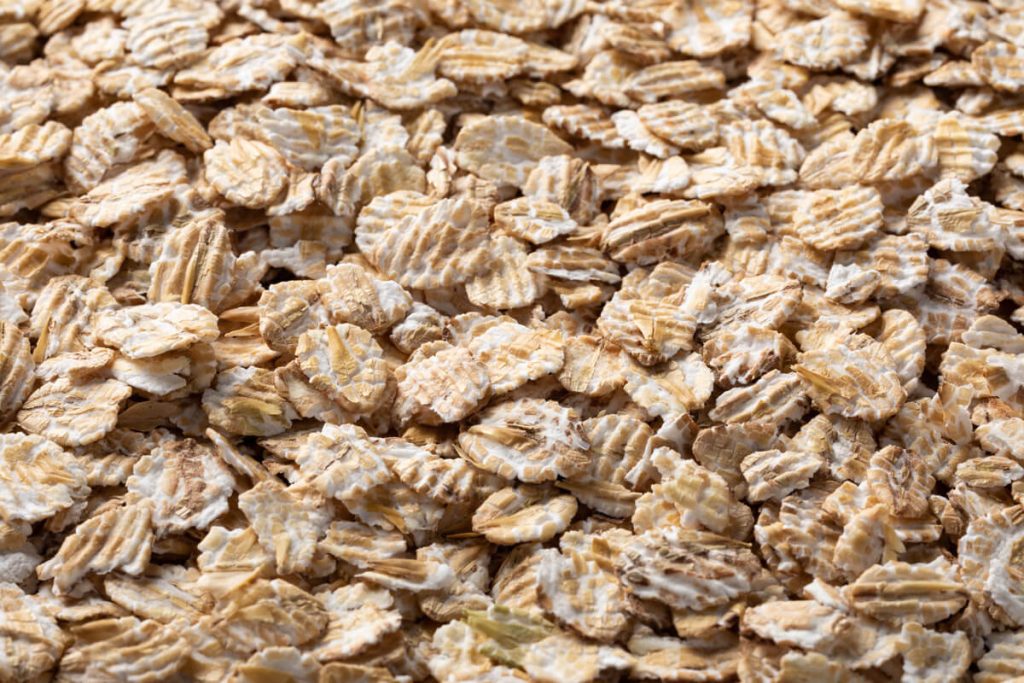
Why Flake?
Raw, intact grains do not lend well to efficient processing in a brewery. Whole grains must be milled to smaller-sized particles to allow the water and enzymes to penetrate and convert the grain in the mash and to efficiently solubilize and rinse the resulting wort in the lauter. Unlike malted grains which are crisp and friable, raw grains are somewhat plastic and can be very difficult for normal brewing roller mills. Flaking replaces milling by disrupting the cell walls of the grain and opening up the inside of the kernel to rapid solubilization and enzymatic attack. Some common brewing grains, namely corn and rice, have starch that isn’t solubilized (gelatinized and pasted) until higher temperatures than the malt enzymes can handle. For this reason, the flaking process also involves some degree of heating to precook these higher-temperature gelatinization grains so that they can be used by brewers directly without further cooking. In short, flaking prepares the raw grain for the brewer’s process, but differently than the processes of malting and milling.
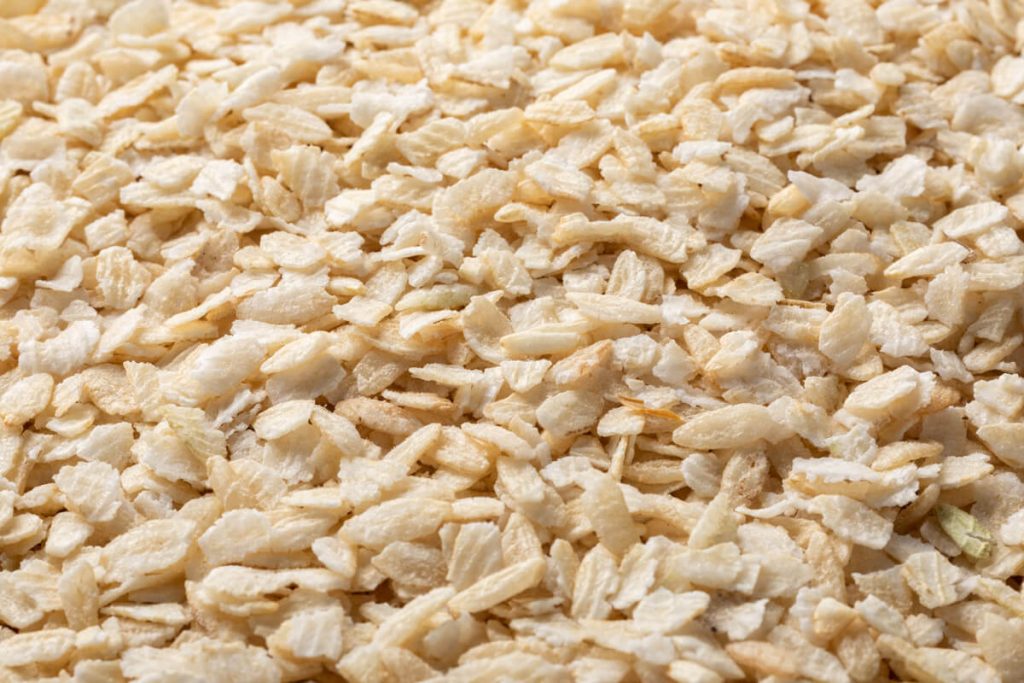
How Flakes are Made
Heating and Precooking
Flakes are made by first heating the grain to precook it and to transform it from a hard rubbery state to a flowable rubbery state in preparation for flaking. At Briess we do this with indirect heat from hot ceramic that’s heated by gas flame. It is also commonly done by direct injection of steam into a chamber or hopper with the grain.
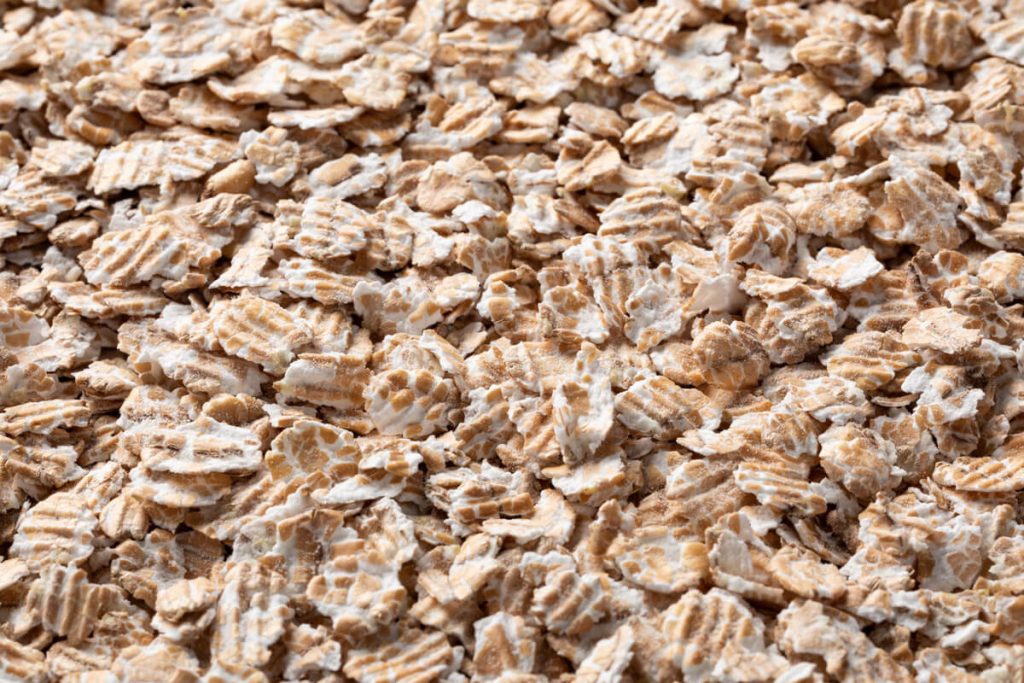
Flake Milling
Flake mills are roller mills set up for their highly specialized purposes. They have very large diameter rolls that can be adjusted to a very tight gap and apply the high pressure needed to squeeze and flatten the hot grain. The rollers may be smooth or fluted and though they have some roller differential and shear to disrupt the grain structure, they are designed to smear the grain more than shred it the way a normal malt roller mill would. The hot flakes are cooled prior to packaging.
Recipe Benefits of Flakes
There are lots of benefits to using flaked grains when formulating beer. Using flaked grains, such as corn or rice, is a great way to moderate color, flavor, and FAN levels in beer to improve drinkability. Flaked grains like oats and wheat are also good at providing haze. Because of their soluble protein, beta-glucans and NSP’s oat and wheat, along with barley and rye flakes can be used to increase body and mouthfeel. Rye flakes also contribute characteristic dry, nutty, and spicey flavors.
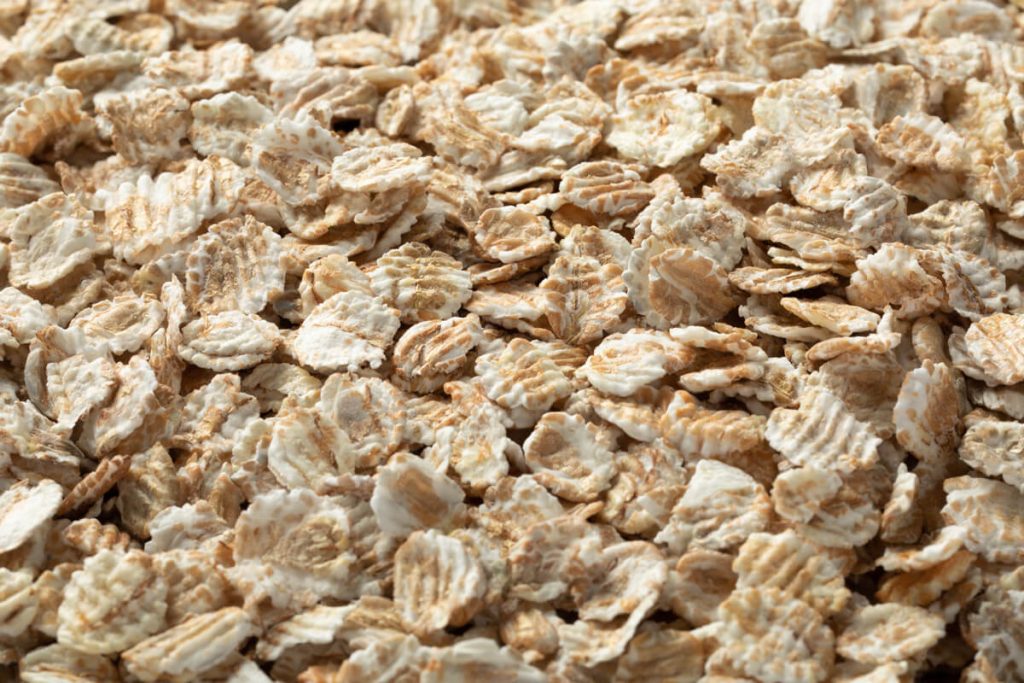
Proper Use
Flakes are brew ready and do not require milling. In fact, any additional milling is counterproductive and usually only serves to make fine flour out of nicely prepared structure, which then inhibits good lautering. Do not use flakes in a wet mill as they will rapidly absorb the water and soften to a gooey mess, possibly clogging the mill. Normally they are added directly to the mash or to the line to the grist case after the mill.
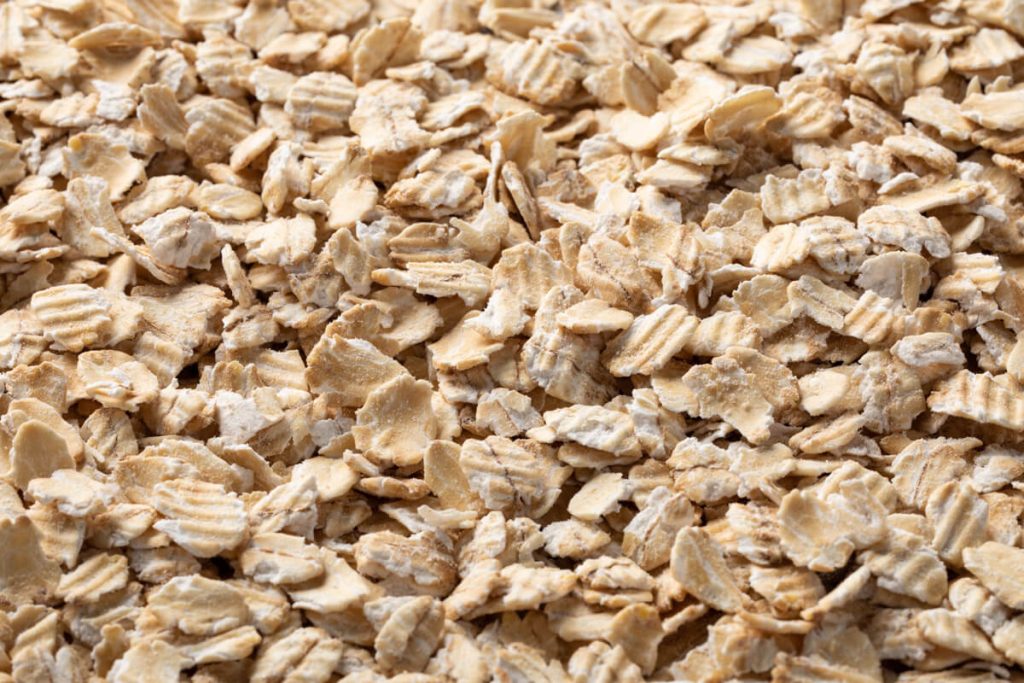
Flakes are non-enzymatic “adjuncts” and are normally used at less than 20% of the grist to impart these special characteristics. At higher levels of use, brewers should make sure that their grist bill and mash schedule is appropriate to be able to get the degree of conversion they need.
Because of the unmodified gums, higher use of rye (>20%) isn’t recommended and lautering issues can occur above this level with wheat and oats. Corn and rice, though free of gums are effectively ‘finely milled” during flaking and also can contribute to longer lauters above 30%.
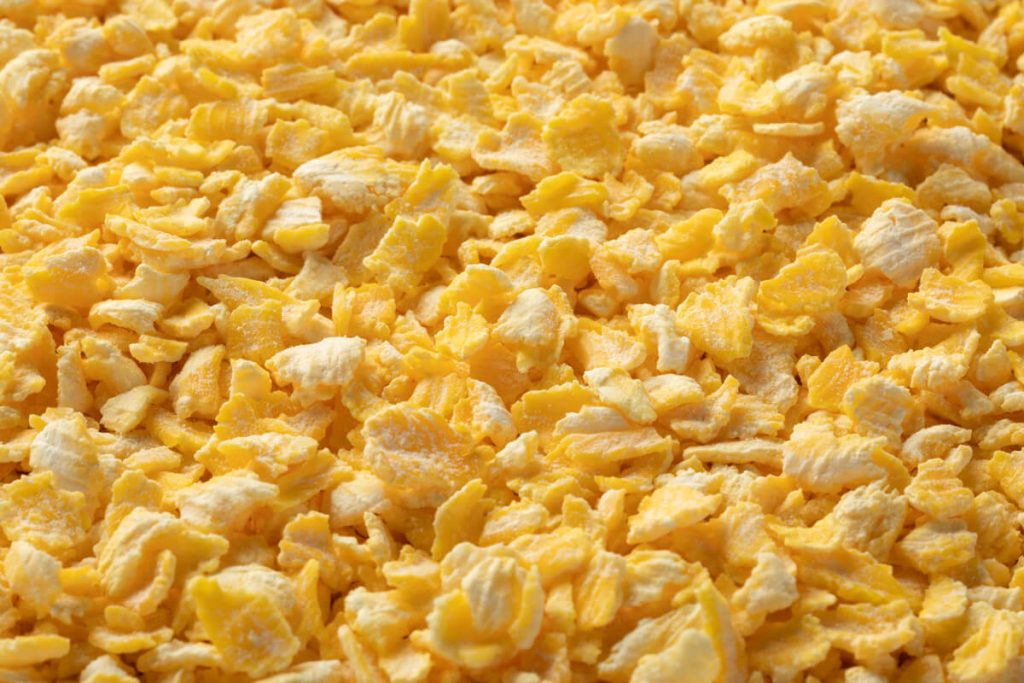
Recipes
For some great recipes showing off flaked grains, just check out our recipe database and search for flaked grains under “Briess Malt” or search the blog posts for interesting stories about flakes.
